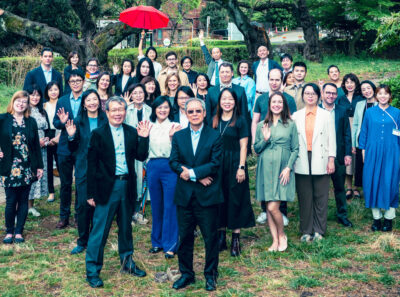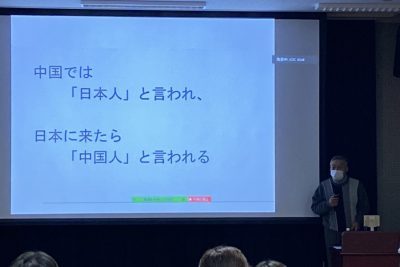Anthropology, Empire, and Philippine Studies into Conversations about Conflict, Security, and Human Rights

On 2022 July 23rd, the Human Security Program (HSP) at the University of Tokyo Komaba and the University of Essex opened a Human Rights Colloquium.[1] The event marked the start of research cooperation and student exchange between the University of Essex and the College and Graduate School of Arts and Sciences at the University of Tokyo, but more importantly, the whole-day event centered on challenges to human security today globally in the fields of conflict and human rights, international law, gender and migration, and discourses surrounding the human body. The Human Security Unit of the United Nations (2009, 6) defines “human security” as a paradigm to “protect the vital core of all human lives in ways that enhance human freedoms and human fulfillment.” Essentially, through the lenses of human security, states and organizations are meant to promote and protect people’s “fundamental freedoms” towards “survival, livelihood, and dignity” (ibid.).
Aside from the many opportunities for learning and collaboration at Tokyo College, one of the best practices at Tokyo College is the pairing of postdoctoral fellows with a mentor within the university. My mentor during my residence is the brilliant Prof. Ai Kihara-Hunt of the Graduate Program in Human Security at the University of Tokyo who is also Secretary of the Academic Council on the United Nations System and lead of the colloquium and the broader exchange. I obtained my masters from HSP under the supervision of The Order of the Sacred Treasure awardee (瑞宝章, Zuihō-shō) Prof. Shinji Yamashita, and I was one of its first foreign graduates. I was thrilled and honored to come back at an event hosted by HSP after more than a decade at the invitation of Prof. Kihara-Hunt, and as a commentator on the colloquium’s opening panel titled “Conflict, Security, and Human Rights.”
In this blog post, I share my insights on three presentations at the colloquium, commenting as an anthropologist of the Philippines at this recently concluded interdisciplinary gathering on human rights who also contributes expertise on Tokyo College’s research theme “Life and its Value for Future Society.” My comments on the papers that touch on empire, knowledge production, and human rights all fall within the broad theme of human security defined above, but they also intimately link with some of the interdisciplinary themes that scholars focus on at Tokyo College.
Three Interdisciplinary Conversations on Human Security
Prof. Han Dorussen (Department of Government, University of Essex), in his presentation titled “The Local Perception of Peacekeepers,” showed that there are generally high levels of local support for peacekeeping operations. For example, in their survey in Timor Leste, 74 percent of respondents agreed with the statement in a survey that the UN helped Timor Leste gain independence; however, 70% also agreed that the missions were riddled with problems, leaving them pleased when the mission finally left after 13 years (Dorussen and de Vooght 2022). How accurate are these surveys showing that the “peacekept” find missions overwhelmingly effective and helpful? What do we make of these missions that Dorussen told us is 76,000 strong, dispersed across 12 missions? Dorussen said in his presentation that despite the seeming local acceptance by the community of peacekeepers, studies have also exposed the emergence of “transactional sex” at sites of missions and the heavy-handedness of peacekeepers which then create abuse, among other issues. Dorussen noted the production of overwhelmingly positive images on peacekeeping missions that portray the acceptance by locals of these missions operating in their community. However, the rest of the world who has not personally been to peacekeeping mission sites are left to wonder if these images match reality.
Dorussen’s presentation on peacekeeping missions reminded me of the work of anthropologist Robert Rubinstein (2010) who likens peacekeeping to what he calls “imperial policing.” I bring up Rubinstein’s critical work on peacekeeping because we could also ask: What are the surveys for? Whose interest do surveys (concerning peacekeeping missions and other related issues) serve and protect? From what models of effectiveness are peacekeeping discourses and survey assessments based? Rubinstein writes, “Peacekeeping is increasingly being outsourced and used to promote national interests and to promulgate a neoliberal view of good governance” (458). Rubinstein argues that an “informal doctrine of UN Peacekeeping” has developed from 1948 to the present (459). This doctrine, according to Rubinstein, was “primarily concerned with the interests of intervening powers.” Rubinstein argues that peacekeeping missions have eventually become an authority that supports a “particular neoliberal, market-oriented, individually based understanding of how societies ought to be structured” (465).
What was also interesting in Rubinstein’s work that I think could be productively used in thinking about survey results showing overwhelming positive support for peacekeeping missions is his analysis of peacekeeping using an anthropological concept called “cultural inversions” which are activities that transcend boundaries. For example, festival or carnival participants perform, dress up, speak, and act in ways that are different from everyday acts. Rubinstein argues that peacekeeping missions perform cultural inversions. In traditional military operations, for example, the premise is that there should be no foreign troops on foreign soil. This premise is inverted by peacekeeping which normalizes international intervention. Within a peacekeeping logic, countries united by a certain mission send troops on sovereign soil as long as they all operate within a similar goal. Additionally, the military is not supposed to be in contact with civilians. Peacekeepers invert this as intense interaction with civilians and cooperation by civic organizations towards peacebuilding are among the foundations of peacekeeping.
Amid these cultural inversions by peacekeeping missions, “confusion reigns” (Rubenstein, 464). Yet, despite these cultural inversions which stir confusion locally, Rubinstein argues that peacekeeping missions arrive at troubled countries as an institution that acts “on a broad international consensus.” Following Rubinstein’s analysis, we can ask: what happens to local reviews of development missions when the aid that comes in is packaged as not only a form of good will, but also an internationally supported intervention?
The second presentation in the panel was titled “The UK-South Africa Security Relationship in the Era of Apartheid” by Prof. Hiroyuki Ogawa (Graduate School of Arts and Sciences, the University of Tokyo). Ogawa’s presentation centered on the history of the security relationship between the UK and South Africa through the Simonstown naval cooperation agreement which was terminated in 1975. While South Africa is quite far from my geographical expertise as an anthropologist of the Philippines, security treaties unfolding in formerly colonized places and unequal relations of power are of personal interest to me, as the Philippines was also multiply colonialized and continues to struggle with the enduring repercussions of multiple coloniality.
Ogawa mentioned another scorching security debate at the time of the apartheid: the arms export to South Africa that polarized debates between political parties in the British colonial metropole. Arms export was critical to United Kingdom-South Africa conversations during the apartheid era because the United Kingdom was the main provider of weapons in South Africa where arms were practically essential to protecting the white minority rule. Meanwhile, neighboring countries supporting the South African liberation movement were impacted by the arms embargo.
The United Kingdom government’s cancellation of the naval cooperation under the Simonstown Agreement, according to Ogawa, was in part due to Britain’s commitment to withdraw its forces from the area and transnational criticisms about its complicity with the apartheid regime facilitated by military cooperation. Learning from Ogawa’s presentation and recalling related literature, what was striking to me was that the end of the Simonstown Agreement merely ended a formal bilateral agreement concerning the use of a naval base, but British ships continued to use the bases’ facilities. Ogawa said that the termination of the contract was meant to resolve local and international concerns about neocolonialism and British complicity with the Apartheid regime, but he argued that these “reconciliations” were superficial as British geopolitical interests in the region continued to operate. Effectively, the termination of the Simonstown agreement led to Britain unloading pressure and colonial guilt while continuing to impose its presence in the area, protect its economic and trade interests, and draw resources from Simonstown which they could still freely access at much-reduced costs. The termination links with the arms embargo, according to Ogawa, because heavy military equipment coming in via the bases were somehow not classified as “arms”; in short, only the British empire was allowed to arm and defend itself amid the embargo.
This part of United Kingdom-South Africa history is one that many colonized countries, such as the Philippines, can relate to. During the American colonial occupation, various US Naval Bases were built at several ports in the Philippines as a way of protecting American imperial interests in the Pacific. The Philippine Congress voted on the unconstitutionality of the US Bases. Filipinos kicked out the last American Bases in 1991, but American military training continued to operate in the Philippines through bilateral security cooperation treaties such as the US-Philippine Visiting Forces Agreement. It seems to be an “imperial habit”—if I may be bold to use this term—to partially take colonial structures apart only to reintroduce them later in other modes that continue to serve imperial interests.
The themes that Ogawa’s presentation touched on reminded me of the work of Frantz Fanon (2004) in Wretched of the Earth about the colonial world as “divided into compartments.” Fanon tells us that examining the system of these compartments reveals to us its underlying “lines of force.” According to Fanon, this compartmentalization is the foundation on which the decolonial society is reorganized. Applying this visualization in the case of South Africa, we might understand these two compartments as composed of the ruling white minority, versus the rest of the population. Cutting across these two compartments, for Fanon, are security forces that protect one side while keeping the other (the colonized) in line. Military institutions such as naval bases are interesting to me, as they force us to think about the peripheries, the shores, and the boundaries of these protected compartments. Shores and the institutions that become rooted in them which stay on long after colonization, the vessels that dock on them, and the agreements concerning them that are struck and later terminated, compel us to think about the enduring economic, military, and political interests of empires. In the abstract of the presentation, Ogawa wrote that there was a spirit of precarity that was “part cynical” as the agreement ended. Perhaps sustained precaritization is a neocolonial political strategy that sustains racialized compartments which are colonial legacies.
The third and final presentation in the panel was titled “Security and Human Rights in Hong Kong” by Prof. Tomoko Ako (Graduate School of Arts and Sciences, the University of Tokyo). As we learned from the presentation and from the news in recent years, Hong Kong had been a site of many youth-led mass-based protests such as the Umbrella Movement which led to many protests that address political shifts such as China’s proposed extradition bill in 2019 that would allow for Hong Kong suspects to be tried in the Mainland. This bill sparked huge protests in Hong Kong, which were then met with tear-gas and police brutality. A year later, the National Security Law was passed. In Ako’s presentation, I heard more about the National Security Law (NSL) which is coming to shape the political life of Hong Kong. The NSL displaces the “One Country, Two Systems” vision that is supposed to allow Hong Kong to enact its own provisions concerning security. Media coverage of the protests in Hong Kong was heavily filtered in Mainland China, where it focused on depictions of disobedience and unruliness, communicating to audiences that there is indeed a need to contain Hong Kong. However, Ako shared that amid this rose independent media and activist organizing in HK and Tokyo, providing alternative platforms for speaking out and moving people to action.
Looking through a lens of “security,” what has happened since 2020 in Hong Kong are crackdowns on free speech and people’s liberties such as their right to expression. Learning more about China’s geopolitical projects under President Xi Jinping in Hong Kong must be of interest to the international community, especially as we have seen in the experience of poorer countries in Asia falling into China’s debt traps (e.g., the case of Port Hambantota in Sri Lanka and the Scarborough Shoals).
As an anthropologist of Filipino migration, I was curious about the repercussions of the effects of the NSL on migrant workers both in China and Hong Kong. I felt very invested in Ako’s presentation as there are approximately 130,000 Filipino workers in the Hong Kong, the majority of which are women working in the domestic labor industry. It is important to focus our attention on the human rights situation in Asia as it unfolds both in Hong Kong, as well as in places like the Philippines which has just concluded a bloody regime under President Rodrigo Duterte, and which will continue to send migrant workers abroad to places like Hong Kong under the newly elected government led by President Ferdinand Marcos, Jr, the son of the former dictator. Mainland China is a relatively new destination for Filipino migrants. My research on Filipino migrant teachers in China exposes the intense precarity experienced by migrant workers working in uncertain contracts which open avenues for abuse and exploitation. The Duterte government, following bilateral agreements struck with Beijing in 2018 on Chinese investments and loans and the promise of jobs for Filipinos in Mainland China, announced the Philippines’ “separation from the United States” and China as our new “big brother” (Kabiling 2018).
Ako’s research on Hong Kong is critical to understanding the interlinked projects of the Chinese Communist Party in laying claim to territories, suppressing dissent in the Mainland and Hong Kong, and extracting foreign labor via precarious contracts, all of which occur against a backdrop of intensified fear that discourages both citizens and the migrant precariat from speaking. These projects serve to fortify Chinese presence and dominance in Asia, which we can see in its building of military infrastructure in the West Philippine Sea, the Hambantota port, and other emerging Chinese bases needed to shore up an expanding regime.
Post (Conference) Script
The description of the invitation to the Human Rights Colloquium asks pertinent questions relevant to conversations happening today amid situations that are further exacerbated by the pandemic continuing to deepen global inequality—namely, “are we witnessing a global ‘backsliding’ in human rights protection?” and “what challenges do the duty bearers of human rights face amidst various environments and circumstances?” The invitation writes that efforts to protect human rights are already challenging as conflict and violence that disproportionately affect women and children endures. Organizers of the event write that within these challenges, we must continue to find ways to engage with each other to find solutions. Academia is certainly a critical venue to host these conversations, but as an institution with access to funding and prestige, it is also a privileged space. As we continue to talk about human rights and other urgent conversations falling within the broad topic of “Life and its Value for Future Society,” we must continue to highlight members of the community and their actions and perspectives on the ground which enrich our perspectives.
References:
Dorussen, Han, and Marian de Vooght. 2022. “The Local Perception of Peacekeepers.” In The Handbook of Peacekeeping and International Relations, edited by Han Dorussen. Edward Elgar.
Human Security Unit. 2009. “Human Security in Theory and Practice.” New York: Office for the Coordination of Humanitarian Affairs, United Nations. https://www.unocha.org/sites/dms/HSU/Publications%20and%20Products/Human%20Security%20Tools/Human%20Security%20in%20Theory%20and%20Practice%20English.pdf
Fanon, Frantz. 2004. The Wretched of the Earth. Translated by Richard Philcox. New York: Grove Press. https://www.worldcat.org/title/wretched-of-the-earth-frantz-fanon/oclc/475112468&referer=brief_results.
Kabiling, Genalyn. 2018. “Duterte Pushes for ‘Big Brother Principle’ in Fostering ‘Inclusive Globalization.’” Manila Bulletin, November 18, 2018. https://news.mb.com.ph/2018/11/18/duterte-pushes-for-big-brother-principle-in-fostering-inclusive-globalization/.
Rubinstein, Robert A. 2010. “Peacekeeping and the Return of Imperial Policing.” International Peacekeeping 17 (4): 457–70. https://doi.org/10.1080/13533312.2010.516652.
[1] The event was co-organized by the Research Center for Sustainable Peace, International Law Training and Research Hub, and the Center for International Exchange at the Graduate School of Arts and Sciences.








